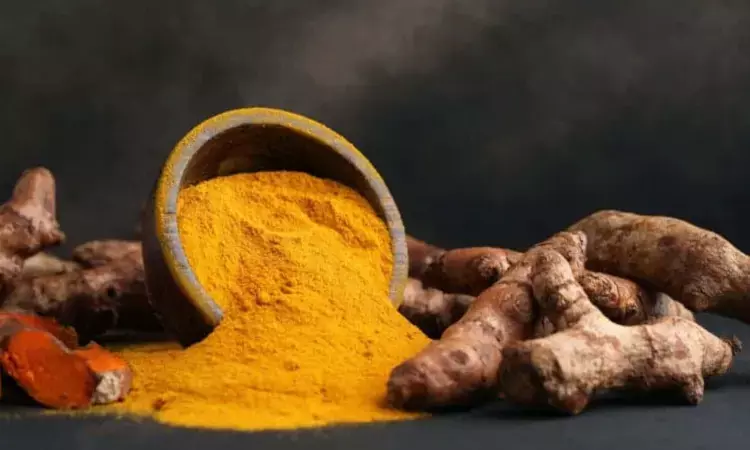- Home
- Medical news & Guidelines
- Anesthesiology
- Cardiology and CTVS
- Critical Care
- Dentistry
- Dermatology
- Diabetes and Endocrinology
- ENT
- Gastroenterology
- Medicine
- Nephrology
- Neurology
- Obstretics-Gynaecology
- Oncology
- Ophthalmology
- Orthopaedics
- Pediatrics-Neonatology
- Psychiatry
- Pulmonology
- Radiology
- Surgery
- Urology
- Laboratory Medicine
- Diet
- Nursing
- Paramedical
- Physiotherapy
- Health news
- Fact Check
- Bone Health Fact Check
- Brain Health Fact Check
- Cancer Related Fact Check
- Child Care Fact Check
- Dental and oral health fact check
- Diabetes and metabolic health fact check
- Diet and Nutrition Fact Check
- Eye and ENT Care Fact Check
- Fitness fact check
- Gut health fact check
- Heart health fact check
- Kidney health fact check
- Medical education fact check
- Men's health fact check
- Respiratory fact check
- Skin and hair care fact check
- Vaccine and Immunization fact check
- Women's health fact check
- AYUSH
- State News
- Andaman and Nicobar Islands
- Andhra Pradesh
- Arunachal Pradesh
- Assam
- Bihar
- Chandigarh
- Chattisgarh
- Dadra and Nagar Haveli
- Daman and Diu
- Delhi
- Goa
- Gujarat
- Haryana
- Himachal Pradesh
- Jammu & Kashmir
- Jharkhand
- Karnataka
- Kerala
- Ladakh
- Lakshadweep
- Madhya Pradesh
- Maharashtra
- Manipur
- Meghalaya
- Mizoram
- Nagaland
- Odisha
- Puducherry
- Punjab
- Rajasthan
- Sikkim
- Tamil Nadu
- Telangana
- Tripura
- Uttar Pradesh
- Uttrakhand
- West Bengal
- Medical Education
- Industry
Curcumin supplementation beneficial for weight loss in obese and diabetic people

Thailand: In addition to lifestyle modification, curcumin supplementation should be an option for weight reduction in patients with type 2 diabetes (T2D) and obesity, research featured in The American Journal of Clinical Nutrition has suggested.
The umbrella review and updated meta-analyses of randomized controlled trials (RCTs) revealed that curcumin supplementation reduces body mass index (BMI), body weight (BW) and waist circumference (WC), specifically in adults with NAFLD, PCOS, metabolic syndrome, or obesity. Curcumin supplementation seemed to be most beneficial in adults with T2D or obesity.
The researchers noted, "bioavailability-enhanced formulas should be preferred over either whole compounds or curcumin extracts for their greater average treatment effect."
Currently, medicinal herbal supplements are gaining popularity for treating obesity. Turmeric is one of the most common herbs used as a dietary supplement or a culinary ingredient. It has been used as a traditional medicine for centuries in Asia owing to its antihyperlipidemic, antidiabetic, anticarcinogenic, anti-inflammatory, and antioxidant properties.
Within the turmeric rhizome, curcumin is the most bioactive compound, which has highly pleiotropic properties and pharmacologic activities, such as modulation of oxidative conditions and anti-inflammatory activity. The major limitation of its use is its low bioavailability owing to poor absorption, rapid systemic elimination, and fast metabolism. Hence, there have been attempts to boost its oral bioavailability by developing other forms of drug delivery, such as nanoparticles, phospholipid complexes, micelles, or by adding some ingredients. Curcumin has been suggested to cause weight loss and reduce obesity-related complications.
Curcumin use has been growing, with several trials reported over the past few years. The findings have yet to be conclusive as the doses and formulation of curcumin may have acted differently in each type of patient. Given the substantial body of evidence in the literature, Chanita Unhapipatpong, Khon Kaen Hospital, Khon Kaen, Thailand, and colleagues aimed to evaluate the effect of curcumin supplementation on anthropometric indices by conducting an umbrella review and updated meta-analysis of RCTs.
For this purpose, the researchers identified systematic reviews and meta-analyses (SRMAs) of RCTs. SRMAs were included if they evaluated curcumin supplementation on body weight, BMI, or waist circumference. Subgroup analyses were stratified by curcumin formula, the severity of obesity, and patient types.
The authors reported the following findings:
- From an umbrella review, the authors included 14 SRMAs with 39 individual RCTs with a high degree of overlap.
- Searching was updated from the last search of included SRMAs in April 2021 up to 31 March 2022. The authors found 11 additional RCTs, bringing up to 50 RCTs in the updated meta-analyses. Of these, 21 RCTs were deemed at high risk of bias.
- Curcumin supplementation remarkably reduced body weight, BMI, and waist circumference with mean differences (MDs) of −0.24 kg/m2, −0.59 kg, and −1.32 cm, respectively.
- The bioavailability-enhanced form reduced body weight, BMI, and WC more, with MDs of −0.26 kg/m2, −0.80 kg and −1.41 cm, respectively.
- Significant effects were also observed in subgroups of patients, particularly in adults with obesity and diabetes.
"Curcumin supplementation significantly improves anthropometric indices, and bioavailability-enhanced formulas are favoured," the investigators wrote.
"Augmenting curcumin supplement with lifestyle modification should be an option for weight loss," they concluded.
Reference:
Unhapipatpong, C., Polruang, N., Shantavasinkul, P. C., Julanon, N., Numthavaj, P., & Thakkinstian, A. (2023). The effect of curcumin supplementation on weight loss and anthropometric indices: An umbrella review and updated meta-analyses of randomized controlled trials. The American Journal of Clinical Nutrition. https://doi.org/10.1016/j.ajcnut.2023.03.006
Dr Kamal Kant Kohli-MBBS, DTCD- a chest specialist with more than 30 years of practice and a flair for writing clinical articles, Dr Kamal Kant Kohli joined Medical Dialogues as a Chief Editor of Medical News. Besides writing articles, as an editor, he proofreads and verifies all the medical content published on Medical Dialogues including those coming from journals, studies,medical conferences,guidelines etc. Email: drkohli@medicaldialogues.in. Contact no. 011-43720751


